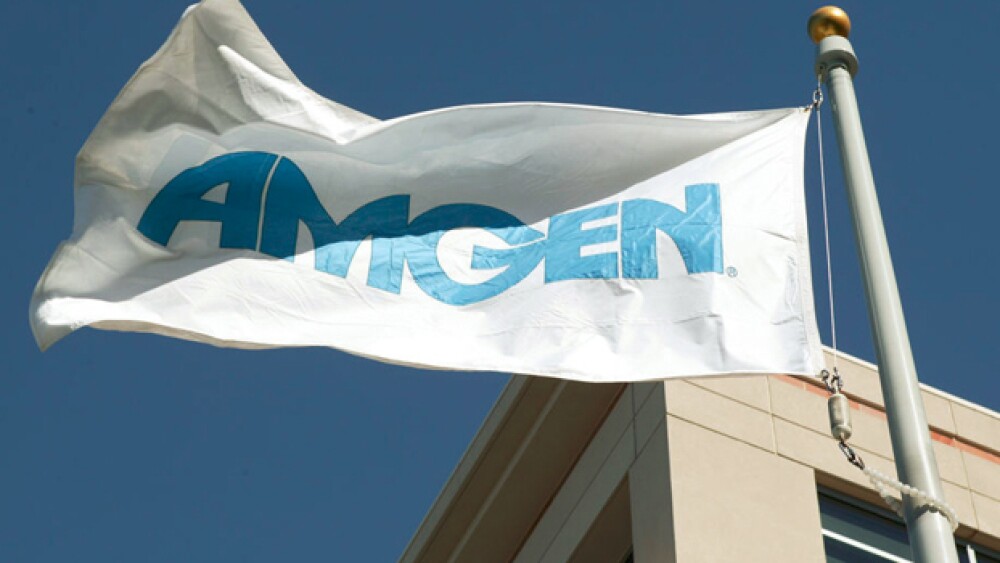In its first-quarter earnings report, Thousand Oaks, California-based Amgen cited total revenue for the quarter of $5.6 billion, up 2 percent compared to the first quarter of 2017. But the quarter’s earnings were driven by double-digit growth for new and recently launched products.
In its first-quarter earnings report, Thousand Oaks, California-based Amgen cited total revenue for the quarter of $5.6 billion, up 2 percent compared to the first quarter of 2017. But the quarter’s earnings were driven by double-digit growth for new and recently launched products.
GAAP Operating Income was up 5 percent, year over year, and GAAP Net Income was up 12 percent, with Earnings Per Share climbing 16 percent. The big sales jumps included Repatha, rising a whopping 151 percent, Blincyto increasing 44 percent, Sensipar/Mimpara increasing 18 percent, Kyprolis rising 17 percent, Prolia growing 16 percent, and Vectibix growing 15 percent.
“Amgen’s strong first-quarter performance was driven by our new and recently launched products, all of which delivered double-digit, volume-driven growth,” stated Robert Bradway, Amgen’s chairman and chief executive officer. “We look forward to further expanding our new product portfolio with the expected U.S. launch of Aimovig (erenumab), our first-in-class migraine prevention therapy, in the second quarter and the European launch of Amgevita (biosimilar adalimumab) our first biosimilar, later this year.”
This coincides with a report that Express Scripts, one of the largest prescriptions benefits manager in the U.S., is targeting Amgen and Eli Lilly’s new migraine medicines to control drug prices.
The typical strategy is having a high U.S. list price, then lowering it for health plans through rebates. Express Scripts is pushing the two companies to skip that strategy. Reuters notes, “It is also seeking a refund if the drugs don’t work within a defined timeframe. The shift could help Express Scripts and other pharmacy benefits (PBMs) bring prices down, and deflect growing criticism of their role as ‘middlemen’ in the drug supply chain.”
Express Scripts’ chief medical officer, Steve Miller, told Reuters, in a message seemingly aimed at drug companies, “If your expectation is that you are not going to actually get that high list price, then don’t do that to patients who have high co-pays. Let’s be more balanced. Let’s get back to where gross-to-net is not so different.”
Amgen’s Aimovig is likely to be approved in May. Similar drugs are expected from Lilly and Teva Pharmaceuticals Industries.
In a quarterly conference call with David Ricks, chief executive officer of Eli Lilly, when asked about Express Scripts’ intentions, said he had been pushing PBMs “for years” to develop contracts that used drug performance as a key metric, and he was happy that Express Scripts “is now changing their view and support this kind of construct. We’ll be happy to work with them on it.”
If Aimovig is approved, analysts expect a list price of up to $10,000 per year.
On its part, Amgen suggests that Aimovig will have advantages over other migraine drugs. In a conference call, Anthony Hooper, Amgen’s head of commercial operations, said Amgen expects a “bolus” of patients for the drug, largely because of a first-to-market advantage. He also noted that, “we will continue to come forward with prices that are responsible that take into account the co-pay requirements as best we can. We have a number of risk-based contracts on the table with Repatha and we’ve [agreed to] talk to payers about risk-based complex with Aimovig.”





